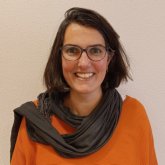HORIZON EUROPE NEPIT - PhD position on Comparison of conventional and novel test methods for reverberation chambers (UNIVPM)
Are you looking for a chance to develop yourself abroad? Università Politecnica delle Marche (Italy) is looking for a PhD within the HORIZON EUROPE NEPIT Marie Skiodowska-Curie Project (Network for Evaluation of Propagation and Interference Training).
The Project NEPIT has a vacancy (DC07) for a PhD researcher to work in the EU Horizon 2020 Marie Skiodowska-Curie Project NEPIT - Network for Evaluation of Propagation and Interference Training. More detailed information on the PhD positions and the objectives can be found on NEPIT.
Before you continue to read this vacancy, please know the working location of this PhD is located at Università Politecnica delle Marche in Italy. This means that you will not be employed at the University of Twente.
NEPIT is funded by Horizon Europe (HORIZON) through the Marie Skiodowska-Curie Actions (MSCA) Training & Mobility Actions (TMA) in the form of a Doctoral Networks (DN) which will host 10 doctoral candidates across Europe and beyond. The inter/multi-disciplinary characteristics is guaranteed by the presence of five academic beneficiaries (University of Twente, Otto-von-Guericke-Universitaet Magdeburg, Wroclaw University of Science and Technology, Università Politecnica delle Marche Eindhoven University of Technology) and one industrial beneficiary (Lumiloop, spin-off company from the Technical University of Dresden) located in four countries (the Netherlands, Germany, Poland and Italy) which possess top class expertise in electromagnetic interference, electronic control, wireless systems, antennas, and propagation.
Furthermore, the inter-sectoral characteristic is guaranteed by the support of a series of industrial entities: ten Industrial partner organisations from five European countries (The Netherlands, Germany, Czechia, Italy and Poland) and even one Industrial partner from Japan. Having Philips Healthcare, Rohde&Schwarz, EVEKTOR, THALES, Telecom Italia, metraTec, National Aerospace Laboratory, Canon Production Printing, Poznanski Instytut Technologiczny, Fokker, Kawasaki Heavy Industries, etc., forms a fully interrelated, integrated, and international consortium.
Information and application
Are you interested after reading about this vacancy? Please apply before February 1, 2025, with an application/motivation letter, a detailed CV (Europass), a publication list, contact details of referees, and an academic transcript of BSc and MSc education. The selection procedure includes an interview and scientific presentation.
Applications will be reviewed on a rolling horizon.
For more information about the position, you are encouraged to contact Jan Beerens via j.beerens@utwente.nl or see the websites NEPIT or NEPITRECRUITMENT
About the organisation
The faculty of Electrical Engineering, Mathematics and Computer Science (EEMCS) uses mathematics, electronics and computer technology to contribute to the development of Information and Communication Technology (ICT). With ICT present in almost every device and product we use nowadays, we embrace our role as contributors to a broad range of societal activities and as pioneers of tomorrow's digital society. As part of a people-first tech university that aims to shape society, individuals and connections, our faculty works together intensively with industrial partners and researchers in the Netherlands and abroad, and conducts extensive research for external commissioning parties and funders. Our research has a high profile both in the Netherlands and internationally. It has been accommodated in three multidisciplinary UT research institutes: Mesa+ Institute, TechMed Centre and Digital Society Institute.



